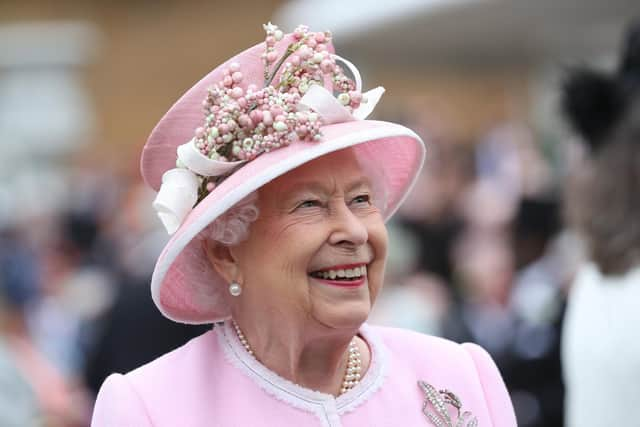How Queen Elizabeth II became a constant anchor in our lives - Stephen Cottrell, Archbishop of York
This is how bereavement works. It goes on. As the Queen herself said, “The pain of grief is just as much part of life as the joy of love: it is perhaps the price we pay for love.’
So, it’s no use saying to ourselves that time is a great healer, as if the person who has gone will come back again. That person has died and now the landscape of our life is re-configured. But, in time, we will adjust. We will – as it were – walk through the garden of our life and be happy again and continue our lives without the person who was gone. But there is no point in pretending the view will ever be the same again. And our grief, which will never entirely go away, is the honourable scar of love.
Advertisement
Hide AdAdvertisement
Hide AdThis is why it is so important to talk about the one who has died. It is why funerals and other rites of passage help so much. We acknowledge the significance of loss. We express our love. We begin to move into the new landscape of a new life without the person we still love dearly.


Over the last ten days, beautifully and quite understandably, the whole nation has been brought together in sadness at the death of our beloved Majesty, Queen Elizabeth II.
Today her body will be laid to rest, and we will commend her life to God, a life, as King Charles put it, “that was lived well.” I will be honoured to have a small part in the service in Westminster Abbey. I will be representing the Church in the North. There is much to be thankful for. Her late Majesty the Queen has been a constant anchor in our national life through the turbulence and changing waters of the post-war period, helping a disintegrating empire become a flourishing Commonwealth of Nations, reconfiguring monarchy in terms of service rather than rule, and demonstrating at the heart of public life the abiding values of duty, dignity, kindness and integrity.
But values do not exist in a vacuum. Nor should they ever be taken for granted.
Advertisement
Hide AdAdvertisement
Hide AdValues arise from and are shaped by beliefs and practices. For Her Majesty the Queen it was the beliefs and practices of the Christian faith that enabled her to live a life of service and to do her duty to the end. This was her anchor. And I'm sure I'm not the only one who has been hugely impressed by the way King Charles, in the few things we have already heard him say in public, clearly intends to continue this tradition. Of course, he will do it his way. But his way, like the Queen’s, is shaped by the way of Jesus Christ. You will not be surprised to hear an Archbishop say, that this is what our nation needs.
But I am going to say it. I think we would do well to reset our compass by the way of Christ. Much has happened in recent years that has driven us apart from one another. We face huge challenges, and the growing gap between rich and poor that the cost of living crisis highlights is just another wedge of separation, and another sign that we are not the united kingdom we need to be. Perhaps the Queen’s last great gift to us is bringing us together across the nations and regions of our country.
Today’s funeral will be a vital rite of passage for the Royal Family itself, but also for the household of our nation. We will give thanks for all that the Queen has done for us, for the Commonwealth and for the world. We will tell our stories. But we will also begin to look forward. My prayer is that we will do this together, paying much greater attention to the needs of all peoples, and particularly for the need to love and support each other across boundaries of difference.
The Christian faith teaches us that we belong to each other and have a responsibility for each other. The boundaries of the kingdom of God run through human hearts. We are commanded to love one another.
Advertisement
Hide AdAdvertisement
Hide AdAt her coronation Queen Elizabeth II walked past the throne in which she would be seated to kneel at the altar. As several people have said this week, not least the Bishop of London, “She gave her allegiance to God before she expected anyone else to give their allegiance to her.”
This is the secret of a life well lived. A life rooted in God from which many blessings flow.
Here in Yorkshire, a patriotic county with a proud history of service, we will be unveiling a statue to Her Majesty the Queen on the west front of York Minster in the near future. It was made to mark her Platinum Jubilee. Its unveiling will now have an additional poignancy.
And just as I remember the tree in the garden where I grew up, so those of us who have been born and lived in the second Elizabethan age, will always remember Queen Elizabeth. But we must also, in time, get used to life without her and give our support to a new king. But we best honour her memory by living lives of service ourselves, working for the common good, and making this nation of ours a truly United Kingdom.
May she rest in peace and rise in glory!
Stephen Cottrell is the Archbishop of York.